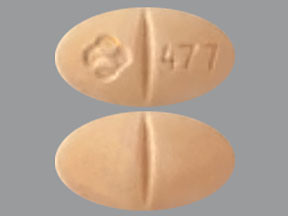RALTEGRAVIR CHEWABLE - ORAL
PHONETIC PRONUNCIATION: (ral-TEG-ra-vir)
COMMON BRAND NAME(S): Isentress
GENERIC NAME(S): raltegravir potassium
Uses
USES: Raltegravir is used with other HIV medications to help control HIV infection. It helps to decrease the amount of HIV in your body so your immune system can work better. This lowers your chance of getting HIV complications (such as new infections, cancer) and improves your quality of life. Raltegravir is known as an integrase inhibitor. It blocks the virus from growing and infecting more cells. Raltegravir is not a cure for HIV infection. To decrease your risk of spreading HIV disease to others, do all of the following: (1) continue to take all HIV medications exactly as prescribed by your doctor, (2) always use an effective barrier method (latex or polyurethane condoms/dental dams) during all sexual activity, and (3) do not share personal items (such as needles/syringes, toothbrushes, and razors) that may have contacted blood or other body fluids. Consult your doctor or pharmacist for more details.
How to use RALTEGRAVIR CHEWABLE - ORAL
HOW TO USE: Read the Patient Information Leaflet provided by your pharmacist before you start taking raltegravir and each time you get a refill. If you have any questions, ask your doctor or pharmacist. Take this medication by mouth with or without food as directed by your doctor, usually 2 times daily. This medication may be chewed or swallowed whole. The dosage is based on your medical condition, response to treatment, age, weight, and other medications you may be taking. Be sure to tell your doctor and pharmacist about all the products you use (including prescription drugs, nonprescription drugs, and herbal products). Avoid using antacids that contain aluminum or magnesium while taking this medication. These antacids can make raltegravir work less well. It is very important to continue taking this medication (and other HIV medications) exactly as prescribed by your doctor. Do not skip any doses. Do not increase your dose or use this drug more often or for longer than prescribed. Your condition will not improve any faster, and your risk of side effects will increase. Do not take less of this drug than prescribed or stop taking it (or other HIV medicines) even for a short time unless directed to do so by your doctor. Doing so may cause the amount of virus to increase and/or make the infection more difficult to treat (resistant). For the best effect, take this medication at evenly spaced times. To help you remember, take this medication at the same times every day. Do not switch between the film-coated tablet, the chewable tablet, or the powder packet for oral suspension forms of raltegravir without asking your doctor or pharmacist first.
Side Effects
Precautions
Interactions
Overdose
Images

- color
- pale yellow
- shape
- round
- imprint
- logo, 473

- color
- pale orange
- shape
- oblong
- imprint
- logo and 477
Reviews
Faq for RALTEGRAVIR CHEWABLE - ORAL
Raltegravir Chewable is an antiviral medication used to treat HIV infection. It belongs to a class of drugs called integrase strand transfer inhibitors.
Raltegravir Chewable works by inhibiting the action of the integrase enzyme, which is necessary for the replication of the HIV virus. By blocking this enzyme, the medication helps prevent the virus from multiplying and spreading in the body.
The recommended dosage of Raltegravir Chewable varies depending on several factors, such as the patient's weight and other medications they may be taking. It is important to follow the instructions provided by your healthcare provider or the prescription label.
Common side effects of Raltegravir Chewable may include diarrhea, nausea, headache, tiredness, and dizziness. These side effects are usually mild and tend to improve with time. However, if you experience any severe or persistent side effects, it is important to seek medical attention.
No, Raltegravir Chewable cannot cure HIV infection. It is an antiretroviral medication that helps control the virus and prevents its reproduction in the body. It is important to continue taking the medication as prescribed by your healthcare provider to effectively manage HIV infection.
Yes, Raltegravir Chewable can interact with certain medications, including rifampin, phenytoin, carbamazepine, and certain antacids. It is important to inform your healthcare provider about all the medications you are currently taking to avoid any potential interactions.
Raltegravir Chewable should be stored at room temperature, away from moisture and heat. The medication should be kept in its original container and out of reach of children.
Disclaimer
IMPORTANT: HOW TO USE THIS INFORMATION: This is a summary and does NOT have all possible information about this product. This information does not assure that this product is safe, effective, or appropriate for you. This information is not individual medical advice and does not substitute for the advice of your health care professional. Always ask your health care professional for complete information about this product and your specific health needs.
No Reviews Yet